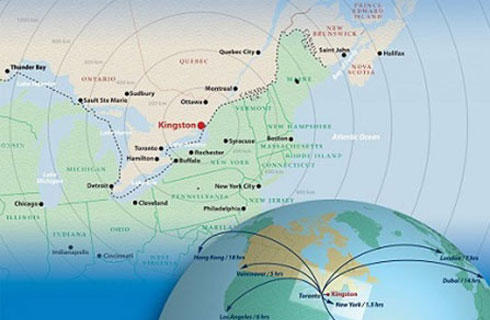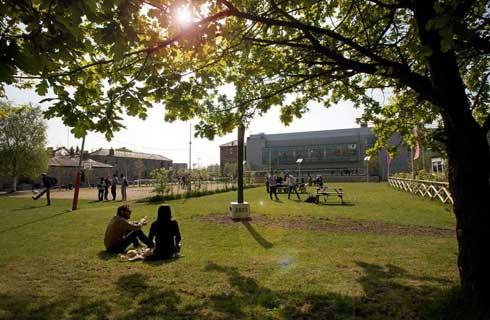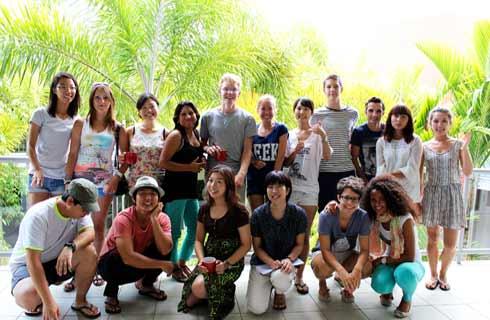- IDP China>
- 课程库>
- 人文科学>
- 语言、文学和语言学>
- 外国语言和文学概述 >
- Bachelor of Global and International Studies in Global Literatures (Honours) [Specialization]
全球和国际研究学士(BGInS)-全球文学(荣誉)
Bachelor of Global and International Studies in Global Literatures (Honours) [Specialization]

学历文凭
Bachelor Degree with Honours

专业院系

开学时间

课程时长

课程学费

国际学生入学条件
IDP—雅思考试联合主办方

雅思考试总分
6.5
了解更多
雅思考试指南
- 雅思总分:6.5
- 托福网考总分:86
- 托福笔试总分:160
- 其他语言考试:Pearson Test of English (PTE) Academic - 60 (min 60 in each Communicative Skill)
CRICOS代码:
申请截止日期: 请与IDP顾问联系以获取详细信息。
课程简介
Building from the commitment of the Department of English Language and Literature to a wide range of global literatures and approaches, the Specialization offers students the rich experience of looking at these literatures in dialogue with other interdisciplinary contexts in global studies.<br><br>Students taking the Specialization in Global Literatures begin with four courses in global studies and with a dedicated course on “Literature in Global Context”. They will then choose from a variety of course offerings in African, Caribbean, South Asian, Indigenous, diaspora, and transnational literatures and theory that will give them the opportunity to investigate how literatures around the world have been shaped by cultural encounters in an age of increasing global interconnectedness. Students will learn not only about the rich historical traditions of various world literatures but also the unique ways in which writers in former colonies, in the diaspora, or circulating in between, articulate experiences of displacement as well as new forms of belonging. At the heart of this Specialization will be questions of cultural translation and mis-translation that have become a key feature of our contemporary world.<br><br>This Specialization will be of interest to students who want to consider the cultural and literary implications of migration, globalization, (post)colonialism, and transnationalism alongside their economic and sociological dimensions. Students will not only develop expertise in global literatures but will also acquire critical thinking and communication skills that will prepare them for a range of career paths including journalism, cultural resource management and policy analysis, civil service, public relations, law, technical and business writing, as well as graduate training in literary and cultural studies.
相关申请
 预科
预科 奖学金
奖学金 实习机会
实习机会 在校学习
在校学习 跨境学习
跨境学习 校园授课-线上开始
校园授课-线上开始 在线/远程学习
在线/远程学习
学校排名

世界排名501
数据源:泰晤士高等教育世界大学排名
关于卡尔顿大学

卡尔顿大学位于加拿大首都渥太华市中心,自 1942 年以来一直通过学位相关的工作经验和研究提供卓越的学习。卡尔顿大学以其充满活力和多元化的社群为傲,欢迎来自世界各地的学生。大学拥有超过3万名学生,其中包括来自150个国家的近4000名国际学生,以及12.5万名校友。在这里,每位学生的独特视角都得到重视和赞赏。该大学注重沉浸式学习,让学生获得工作经验、动手研究和社区参与,为学业和职业发展奠定坚实基础。学生还有机会通过实习、合作项目和带薪实习等方式学习,确保毕业后做好充分的就业准备。卡尔顿大学的奖学金和助学金项目是加拿大最容易申请的项目之一。每年,大学向本科生颁发超过 13000 份奖学金和助学金,总额超过 2500 万加元。大学还保证为所有从高中直接进入一年级学习的学生提供宿舍中的双人传统房间,前提是他们在五月中旬之前收到录取通知书。国际学生可以选择在卡尔顿大学校园内住宿,直至完成整个学位课程,最多可连续住宿 5 年。大学校园毗邻美丽的里多河、历史悠久的里多运河和住宅区。渥太华拥有众多政府机构和大使馆,超过1900家科技公司,以及全国大部分临床、医学和生命科学研究中心。渥太华不仅是全球在工作与生活平衡方面处于领先地位的城市之一,而且在北美科技市场中,科技就业增长率最高,排名第二(2025 年全球工作与生活平衡城市指数 2024 年 Blueground 科技人才评分世邦魏理仕)。
本校相关课程
其他相关课程

Master of Arts in Russian, East European and Eurasian Studies - Russian Literature
 俄勒冈大学
俄勒冈大学泰晤士高等教育世界大学排名:401
学历文凭
Masters Degree
开学日期
课程费用总额


俄语文学硕士(论文)
 麦吉尔大学继续教育学院
麦吉尔大学继续教育学院学历文凭
Masters Degree
开学日期
课程费用总额


Bachelor of Arts in Asian and Middle Eastern Studies - Interregional Studies
 达特茅斯学院
达特茅斯学院泰晤士高等教育世界大学排名:161
学历文凭
Bachelor Degree
开学日期
课程费用总额


文学文学硕士
 德克萨斯大学埃尔帕索分校
德克萨斯大学埃尔帕索分校学历文凭
Masters Degree
开学日期
课程费用总额

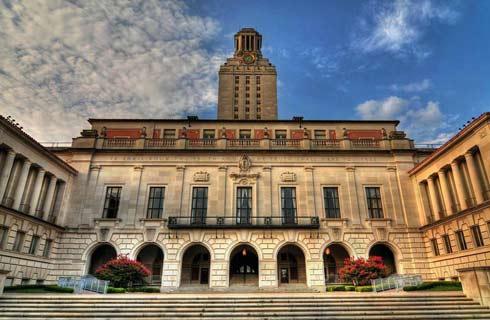
中文文学学士
 凯斯西储大学
凯斯西储大学泰晤士高等教育世界大学排名:164
学历文凭
Bachelor Degree
开学日期
课程费用总额

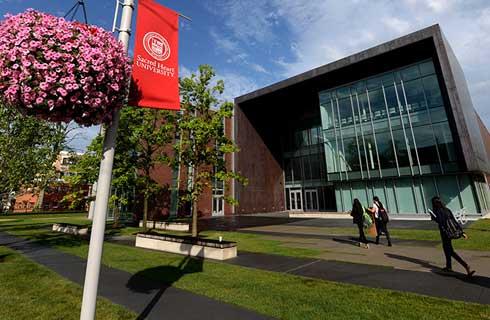
Associate in Arts - Chinese Language
 圣华金三角洲学院
圣华金三角洲学院学历文凭
Associate Degree
开学日期
课程费用总额
























